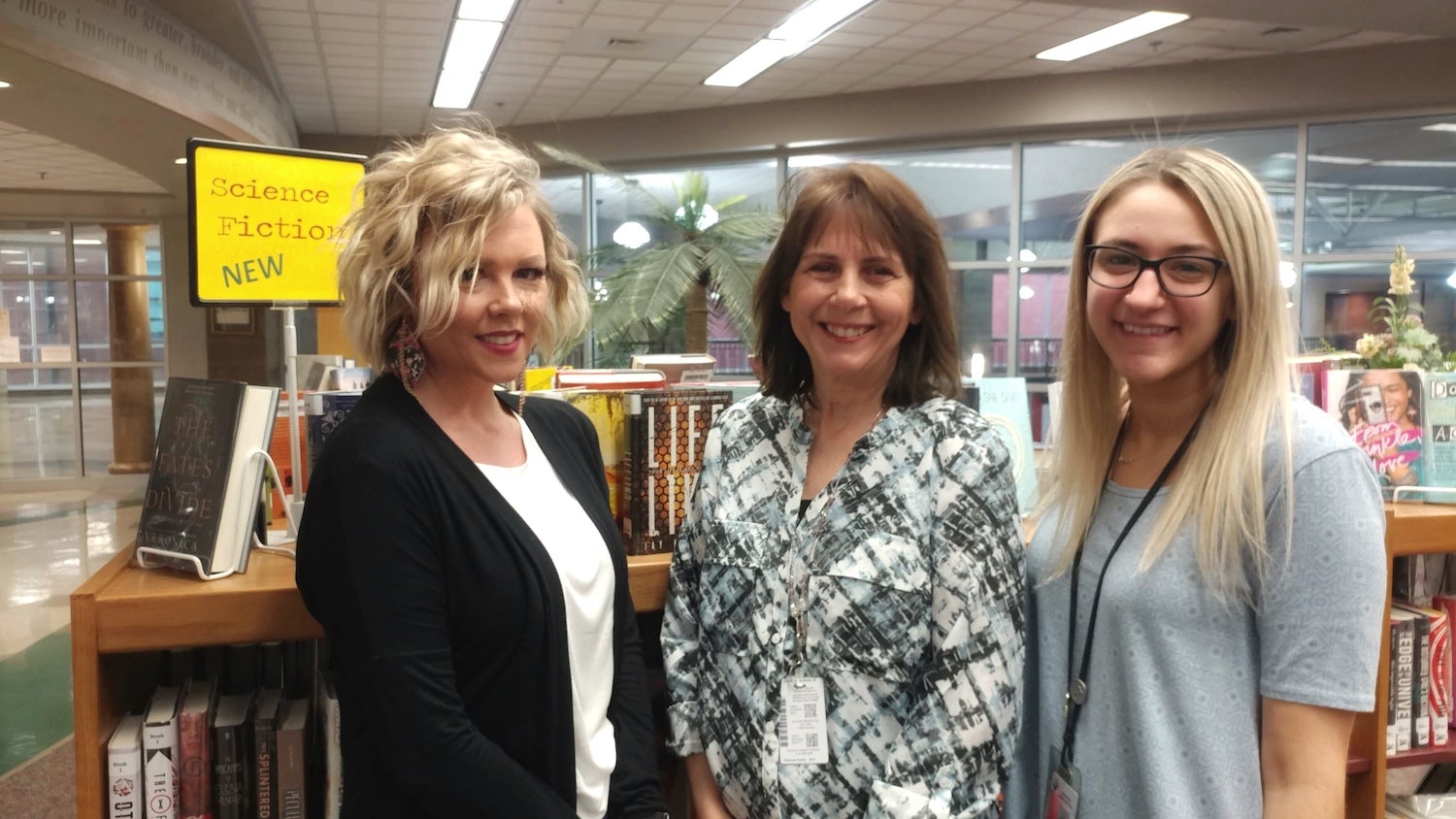
Overview
Located in Springfield, Missouri, Central High School enrolls more than 1,500 students in grades nine through 12, and another 140 middle school students in the Springfield Scholars Program, an accelerated academic experience for highly gifted students in grades six through eight. As a 1:1 school, Central High issues each student a Google Chromebook at the beginning of the school year. Students and educators have 24/7, single sign-on access to the library’s information resources through Canvas, the school’s learning management system. These resources include Science Reference Center, Points of View Reference Center, EBSCO eBooks and Explora, EBSCO’s dedicated search interface for schools.
Explora is the best for teaching research skills. It hits every topic.
— Cindy Mueller, Librarian
Central High School
Supporting Library Instruction
Cindy Mueller and Sarah Gugliotta are Central High School’s full-time librarians. Students have been using Explora, which allows them to search multiple EBSCO databases at once, since the search interface was released in 2014.
“Several teachers require that students include articles from peer-reviewed resources in their research,” Mueller said. “Explora makes meeting this specific requirement easy.”
Typically, students are introduced to Explora when a classroom teacher brings them down for library instruction prior to a research assignment. Mueller provides a demonstration on how to access the library’s databases, use filters to narrow search results to specific source types (such as primary sources and Associated Press videos), save articles to Google Drive, and properly cite sources using EBSCO’s citation tool.
“I always use Explora,” Mueller said. “We have other databases that may be more specialized, but Explora, honestly, is the best for teaching research skills. It hits every topic.”
In addition to rich multidisciplinary content, Explora also offers a Text-to-Speech feature for HTML articles. Hearing an article read aloud can assist struggling readers, auditory learners and those still developing English language proficiency. Mueller said that the ability to translate HTML articles to Spanish (and 33 other languages) is also supporting the school’s English language learner population.
Classroom Use Case
As part of a unit on Shakespeare’s Romeo & Juliet, students in Kori Chrismer’s freshman English class recently used Explora to research one of five different relationship types represented in the play. The relationship types were as follows: friends, lovers, enemies, authorities and mentors. As they read Acts I and II of the play, students took notes on these relationship types and jotted down relevant quotes. At the end of Act II, each student drafted a research proposal indicating which relationship type he or she wished to focus on in a five-paragraph essay.
Chrismer said some students initially complained about having to read Shakespeare because they couldn’t see how it related to their lives. Her response? “All right. Let’s talk about this. Do you have authority figures in your life? Do you have mentors? Do you have friends? Do you have enemies? Do you have a romantic partner? This is what’s going on in Romeo & Juliet — all these different relationships at work — so we are going to investigate that.”
The assignment called for students to formulate two questions about their chosen relationship type and answer them through research. Chrismer brought her class to the library where Mueller introduced them to Explora, EBSCO’s dedicated search interface for schools. Mueller showed students how to conduct advanced searches, narrow their results using limiters, and use the citation tool to build their works cited page.
For many of Chrismer’s students, it was their first experience using a database.
“They had a lot of quick hits, a lot of good articles that they ended up using,” Chrismer said, noting that one student found several articles to support her thesis that romantic relationships are sustained by attraction, communication and thoughtfulness, not merely love at first sight. Other students realized they had to narrow the focus of their thesis statements. “Some were searching terms that were too specific, and they had to draw back a little bit. I think it was a good learning experience for them.”
Chrismer thought students would be more apt to remember how to use Explora in the future if the assignment connected to their own lives.
“If they just do research on Romeo & Juliet, that’s not personal,” she explained. “It’s not going to mean as much to them, and they might not remember how to use Explora as much as they would if it was more personal.”
In an era when students are quick to use internet search engines for research, Mueller said she appreciates when teachers like Chrismer bring students to the library.
“It gives us the opportunity to stress that library databases contain credible sources,” Mueller said. “Our district pays thousands of dollars for access to these great resources. We want the students to use them.”

Ready to take the next step?